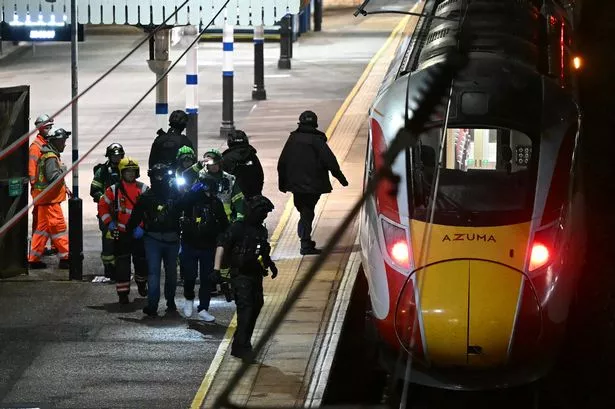A petition advocating for the legalisation of pepper spray for personal defence has gained significant traction, nearing 33,000 signatures following a violent incident on a train near Huntingdon. The attack, which left passengers feeling vulnerable and trapped, has sparked a national conversation about personal safety and self-defence options in the UK.
The petition was initiated by Alex Asprey, a resident of Wolverhampton, who believes that allowing responsible adults to carry regulated personal defence sprays could enhance safety, particularly for women. In his statement, Asprey highlighted the harrowing experience of passengers during the stabbing incident, stating, “Passengers were trapped in the carriage with nowhere to run and nothing to defend themselves with. In moments like that, people are completely powerless, and it shouldn’t have to be that way.”
The attack occurred on an LNER service shortly after leaving Peterborough, forcing a diversion to Huntingdon. Following the incident, Anthony Williams, aged 32, was charged with ten counts of attempted murder, one count of actual bodily harm, and another for possessing a bladed article. The public outcry following the stabbing has intensified discussions around personal safety measures.
Rising Concerns Over Personal Safety
Asprey’s petition underscores a broader concern regarding the safety of individuals in public spaces. He pointed out that the Office for National Statistics has reported that over two-thirds of victims of domestic abuse-related crimes are women, and approximately 85,000 women in the UK experience rape or serious sexual assault annually. “These numbers aren’t going down,” he asserted, emphasizing that a legal, non-lethal spray could provide critical seconds for individuals to escape dangerous situations.
He further argued that the increase in knife and violent crime, combined with the unpredictability of attacks, necessitates a re-evaluation of personal defence tools. “Violence isn’t limited to one group,” Asprey noted, insisting that a regulated system for carrying pepper sprays could offer a viable solution. “We can too. This isn’t about encouraging violence. It’s about giving people, especially women, a chance to protect themselves when the police can’t be there in time.”
The petition calls on the UK Government to allow the legal carrying of low-strength pepper sprays under strict regulations regarding sale, age, and usage. Asprey cited examples of other countries where similar measures have been implemented safely, arguing that the UK should follow suit.
Honouring Acts of Bravery
In a separate development, a petition seeking to honour Samir Zitouni, a rail worker who attempted to intervene during the attack, has also gained momentum, attracting around 1,000 signatures. Organiser Chris Arnold from Chichester has proposed that Zitouni be awarded the George Cross, the highest civilian honour in the UK, for his courageous actions.
As both petitions continue to gather support, they reflect a growing public demand for enhanced personal safety measures and recognition of bravery in the face of violence. Whether the UK Government will respond to these calls remains to be seen, but the conversation surrounding personal defence and community safety is clearly resonating with many across the country.







